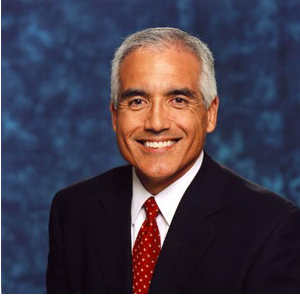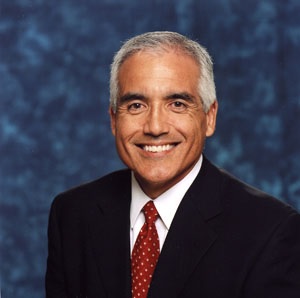
Two members of the City College Board of Trustees recommended Thursday putting the brakes on a salary raise for administrators that has been heavily opposed by the faculty union.
At the inaugural meeting of the Budget and Audit committee, trustees Ivy Lee and John Rizzo voted to recommend the full board bring in an independent financial analyst to take a comprehensive look at the raises proposed by Chancellor Mark Rocha and determine if they are reasonable, fiscally feasible, and how they compare with similar institutions.

Trustees Brigitte Davila and Tom Temprano – who were also named to the newly-created, three-member committee – were not present Thursday. Rizzo was named as an alternate, and will only be seated when there is a vacancy.
Funding for the raises was included in the 2019-2020 budget passed by the board in August. But many observers – including some trustees – weren’t aware the new budget included raises for directors, deans, and vice chancellors. Both Lee and Rizzo said they didn’t know money had been set aside for the proposed raises, which appeared in an appendix without referencing last year’s figures.
The proposed raises first gained widespread attention when AFT 2121, the union which represents faulty at City College, noticed the new salary schedule had been posted to the college website.
“We just saw it on the HR website, with no fanfare, no announcement,” AFT 2121 President Jenny Worley said last week. “We actually couldn’t believe it. We thought it was a mistake, but apparently not.”
The union began referring to it internally as “salarygate.”
A statement from the college on Sept. 11 referred to the new salary schedule as being “approved” by the board in August. But a statement released by Rocha on Monday backpedaled.
“The fact of the matter is that the administrator salaries have NOT yet been approved,” he wrote. “I am required by Board Policy 1.26 to report in an open session of the board the proposed salaries for administrators … It is not plausible that I would willfully ask the board to violate its own policy.”
Leslie Milloy, Rocha’s chief of staff, said in retrospect the college should not have posted the proposed new salary ranges to the website before the raises were approved by the board – even though the board did approve the budget, which allocated funding for the raises.
“Many times, I have shot myself in the foot,” Rocha said at the meeting Thursday morning, with a self-deprecating chuckle. “This is a case in which I have tried…to shoot my foot clean off.”
Even though salaries for individual employees would go up under the new pay schedule, Milloy said that because the overall administrative headcount is down 25 percent from last year due to a combination of layoffs and early retirement incentives, the college is budgeted to spend $2 million less on administrative salaries this fiscal year.
Administrators have argued they are significantly underpaid compared to other institutions, and to a salary survey released by the Association of California Community College Administrators in 2017.
“A current employee has in fact filed a State of California Department of Fair Employment and Housing (DFEH) claim to sue the district on this basis, which presents a significant expense to the district. There is no question the board’s approval of the revised salary schedule has reduced the possibility of further claims and suits,” the college’s Sept. 11 statement said, erroneously referring to the new salary schedule as a done deal.
48hills obtained a copy of the labor complaint, which was filed in February by a Latina woman who had been employed at City College as an associate dean earning $119,000 a year. The woman alleged she was denied equal pay based on her sex and race. She did not respond to a request to comment for this story.
“I am aware of at least two associate deans who perform similar job functions with less financial responsibility than I have, who are paid a significantly higher salary than me,” she wrote in the complaint.
To support the case for administrative raises, Rocha released a list of the 100 highest-paid employees, redacting the names of workers who are not administrators. Although her name was redacted and she was categorized on the list as a faculty member, 48hills learned the woman who filed the labor complaint appeared on the list as the eighth-highest paid employee at the college. She earned $196,642 in 2018, according to the list.
That’s not her base salary – it includes a payout for unused vacation pay, which faculty members don’t get.
Milloy said the woman chose to return to a faculty position rather than continue working as an administrator after she filed her complaint.
Lee said she was aware the complaint existed, but was not familiar with the details. She said she wanted the analysis presented to the board on the proposed salary increases to include any gender disparities that might exist at the college today.
“Based on job descriptions, I know that there are several administrators that are doing way more than what they are contracted to do. A lot of them are women of color,” Lee said. “In general, women of color get paid less.”
The full board will take up the matter at their next regular meeting on Sept. 26.


